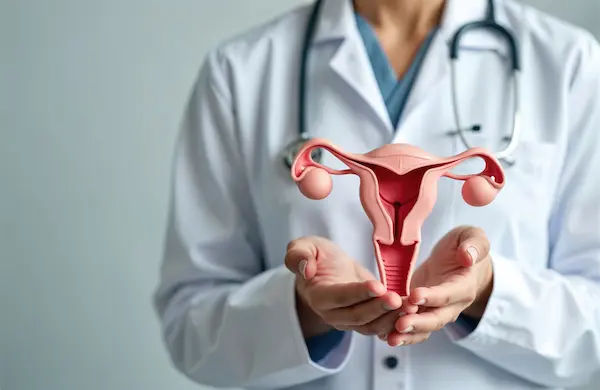Guide to Factors Affecting Male Fertility
Explore the key factors that affect male fertility, including lifestyle, health, and age, and learn how to optimise sperm health.

Written by Dr. Dhankecha Mayank Dineshbhai
Reviewed by Dr. Vasanthasree Nair MBBS
Last updated on 26th Sep, 2025

Introduction
When a couple decides to start a family, the health of both partners is paramount. While often overlooked, male fertility plays a crucial role in the journey to conception. In fact, factors related to the male partner are a contributing cause in about 30-50% of infertility cases. Understanding what influences sperm production and function is the first step toward taking proactive control of your reproductive health. This guide moves beyond the basics to provide a deep dive into the medical, lifestyle, and environmental factors affecting male fertility. We will explore everything from common conditions like varicocele to the significant impact of daily habits like diet and stress management. Our goal is to empower you with knowledge, debunk myths, and outline practical steps you can take to optimise your fertility and improve your chances of achieving a successful pregnancy. Think of this not just as a list of problems, but as a roadmap to enhancing your overall well-being.
Understanding the Basics of Male Fertility
Male fertility hinges on the body’s ability to produce healthy sperm and deliver them effectively. This process is more complex than it seems, requiring a harmonious interplay of hormones, anatomy, and physiology. Sperm production (spermatogenesis) occurs in the testicles and takes approximately 64-72 days. After production, sperm mature in the epididymis before being ejaculated. The quality of this final product is what determines fertility potential.
The gold standard for assessment is a semen analysis. This test provides a snapshot of sperm health, but it's important to remember that it's just one piece of the puzzle. A single test can be influenced by recent illness or stress, which is why doctors often recommend repeat testing.
What is a Semen Analysis?
A semen analysis is a laboratory test that evaluates several key characteristics of a semen sample. It’s a non-invasive and fundamental first step when investigating male fertility. The test measures volume, concentration (count), motility (movement), and morphology (shape and size). While it can't assess sperm function (like its ability to fertilise an egg) on its own, it identifies potential red flags that warrant further investigation.
Key Sperm Health Parameters: Count, Motility, and Morphology
These three parameters are the pillars of sperm health:
- Sperm Count (Concentration): This refers to the number of sperm present in one millilitre of semen. A low sperm count (oligospermia) reduces the odds of a sperm reaching and fertilising the egg. The World Health Organisation (WHO) defines a "normal" count as at least 15 million sperm per millilitre.
- Sperm Motility: This is the percentage of sperm that are moving, and more importantly, moving forward progressively. Even with a high count, if most sperm are immotile or swimming in circles (asthenospermia), conception is unlikely. At least 40% motility is generally considered healthy.
- Sperm Morphology: This assesses the shape and structure of the sperm. Ideally, a sperm should have an oval head and a long, straight tail. A high percentage of abnormally shaped sperm can indicate problems with sperm production. According to WHO criteria, having at least 4% normally shaped sperm is considered normal.
Unique Insight: It's a common misconception that only count matters. Think of it like an army: you need enough
soldiers (count), but they also need to be able to march in the right direction (motility) and have the proper equipment to complete their mission (morphology). All three are critical.
Consult a Urologist for the best advice
Medical Conditions That Impact Sperm Health
Various underlying health issues can significantly impair sperm production or delivery. Identifying and addressing these conditions is often the most direct way to improve male fertility.
Varicocele: The Most Common Reversible Cause
A varicocele is an enlargement of the veins within the scrotum, similar to varicose veins in the legs. It occurs in about 15% of all men but is found in about 40% of men evaluated for infertility. The exact reason it harms sperm is debated, but it's likely related to increased testicular temperature and blood backflow, which can damage sperm. The good news is that a varicocele is often treatable with a minor surgical procedure, which can lead to improvements in sperm count and function.
Infections and Their Aftermath
Infections of the reproductive tract, such as epididymitis (inflammation of the epididymis) or orchitis (inflammation of the testicles), can block the passage of sperm or cause scarring. Even some sexually transmitted infections (STIs) like chlamydia or gonorrhea can cause silent damage. Furthermore, systemic infections accompanied by a high fever can temporarily suppress sperm production for several months.
Hormonal Imbalances: The Body's Chemical Messengers
The process of sperm production is governed by a delicate hormonal cascade originating in the brain (hypothalamus and pituitary gland) and involving the testicles. Low levels of testosterone or imbalances in other hormones like FSH (Follicle-Stimulating Hormone) and LH (Luteinising Hormone) can bring sperm production to a halt. An endocrinologist can help diagnose and manage these conditions. If you experience symptoms like low libido, fatigue, or erectile dysfunction alongside fertility concerns, consulting a doctor online with Apollo24|7 can be a good first step to discuss potential hormonal issues.
Genetic Disorders and Chromosomal Defects
In a small percentage of men, infertility is due to genetic abnormalities. Conditions like Klinefelter syndrome (where a male is born with an extra X chromosome) can impair testicular development. Microdeletions on the Y chromosome (the male sex chromosome) can also affect genes crucial for sperm production. Genetic testing may be recommended if sperm concentration is extremely low.
Lifestyle Choices and Their Direct Effect on Fertility
Your daily habits have a profound impact on your reproductive health. The silver lining here is that these are factors within your control to change.
Diet, Exercise, and Body Weight
Obesity is a significant risk factor for infertility. It can alter hormone levels, increase scrotal temperature, and promote oxidative stress, which damages sperm DNA. A diet rich in antioxidants (found in fruits, vegetables, nuts, and seeds) is one of the best ways to improve sperm health naturally. Key nutrients include zinc (found in shellfish and legumes), folate (leafy greens), and omega-3 fatty acids (fatty fish). Conversely, a diet high in processed meats, trans fats, and sugar can be detrimental. Regular, moderate exercise helps maintain a healthy weight and reduces stress, but excessive, intense endurance exercise may temporarily lower sperm quality.
The Impact of Smoking, Alcohol, and Recreational Drugs
- Smoking: Tobacco smoke contains thousands of toxins that can directly damage sperm DNA, reduce motility, and lower count. The evidence is clear: quitting smoking is one of the most beneficial steps for fertility.
- Alcohol: Heavy alcohol consumption can lower testosterone levels and impair sperm production. While moderate
drinking may not have a major effect, it's best to limit intake when trying to conceive. - Recreational Drugs: Marijuana can reduce sperm count and motility. Anabolic steroids used for bodybuilding shut down the body's natural hormone production, leading to severe, and sometimes permanent, infertility.
Stress, Sleep, and Mental Wellbeing
Chronic stress elevates cortisol levels, which can interfere with the hormones needed for sperm production.
Furthermore, the emotional toll of infertility can create a vicious cycle of stress. Prioritising sleep is critical, as
testosterone production primarily occurs during sleep. Aim for 7-8 hours of quality sleep per night. Techniques like
mindfulness, meditation, or yoga can be powerful tools for managing stress-related male infertility.
Unique Insight: The impact of lifestyle is cumulative. It's not about one bad meal or a single stressful day, but the
pattern over the 3-month sperm production cycle. Making positive changes today will yield results in about three
months' time.
Environmental and Occupational Hazards
Certain elements in our environment and workplace can act as "endocrine disruptors" or directly damage sperm.
Exposure to Toxins and Chemicals
Pesticides, herbicides, heavy metals (like lead and cadmium), and industrial chemicals (like BPA found in some
plastics) can mimic or block hormones in the body. Men working in farming, printing, or manufacturing may have
higher exposure. Simple steps like washing fruits and vegetables thoroughly, using glass or stainless-steel containers instead of plastic, and following proper safety protocols at work can reduce risk.
The Role of Heat and Radiation
The testicles are located outside the body for a reason: they need to be about 2-3 degrees Celsius cooler than core body temperature for optimal sperm production. Sources of prolonged heat exposure include:
- Frequent use of saunas or hot tubs.
- Tight-fitting underwear or clothing.
- Sitting for long periods (e.g., truck drivers, desk jobs).
- Placing a laptop directly on the lap.
While radiation from X-rays or cancer treatment can severely damage sperm, modern shielding techniques help
minimise exposure during necessary medical procedures.
Proactive Steps to Improve Male Fertility
Taking a proactive approach empowers you and your partner on your conception journey.
When to Seek Help: Timing and Testing
The general guideline is to see a doctor if you haven't conceived after one year of unprotected intercourse. However, you should seek evaluation sooner if you have any known risk factors (like a history of undescended testicles, chemotherapy, or a partner over 35). A urologist or reproductive endocrinologist specialises in these issues.
Creating a Fertility-Friendly Lifestyle Plan
Start by focusing on the fundamentals:
- Nutrition: Adopt a Mediterranean-style diet rich in antioxidants.
- Exercise: Engage in moderate exercise for at least 30 minutes most days.
- Avoid Toxins: Quit smoking, limit alcohol, and reduce exposure to environmental chemicals.
- Manage Heat: Wear loose-fitting underwear, avoid prolonged hot baths, and take breaks from sitting.
- Reduce Stress: Incorporate stress-reduction techniques into your daily routine.
Unique Insight: Frame this as a joint effort with your partner. Making these lifestyle changes together not only improves the chances of conception but also strengthens your relationship and shared commitment during what can be a challenging time.
Conclusion
Understanding the multitude of factors affecting male fertility is the foundation for taking positive action. From addressing underlying medical conditions like varicocele to making empowered lifestyle choices regarding nutrition, exercise, and stress management, you have more control over your reproductive health than you might think. Remember that sperm health is a reflection of your overall well-being. The journey to improving male fertility is a marathon, not a sprint, given the 70-day sperm production cycle. Patience and consistency are key.
If you and your partner are facing challenges, know that you are not alone. Modern medicine offers a wide range of diagnostics and treatments. The most important step is to seek informed guidance. If you have concerns about your fertility after reviewing these factors, consulting a doctor with Apollo24|7 can provide personalised advice and a clear path forward. By being proactive, you can optimise your health and increase your chances of building the family you desire.
Consult a Urologist for the best advice
Consult a Urologist for the best advice
Dr. Mohammed Rehan Khan
Urologist
8 Years • MBBS, MS (General Surgery), Mch (Urology)
Barasat
Diab-Eat-Ease, Barasat

Dr. Gaurab Dasgupta
Urologist
14 Years • MBBS, MS General Surgery, MCH Urology, FMAS
Kolkata
MCR SUPER SPECIALITY POLY CLINIC & PATHOLOGY, Kolkata

Dr. Kunal Kumar Mehar
Urologist
10 Years • Mbbs, Ms, Mch
Bengaluru
Apollo Medical Center, Marathahalli, Bengaluru

Dr. S Suresh Goud
Urologist
4 Years • MS, Mch (Uro)
Karimnagar
Apollo Reach Hospitals Railway Station Road, Karimnagar
(25+ Patients)

Dr Ved Bhaskar
Urologist
11 Years • MBBS, MS (Gen Surgery), MCh (Urology), Fellowship in Robotic Surgery
Lucknow
Apollomedics Super Speciality Hospital, Lucknow
Consult a Urologist for the best advice
Dr. Mohammed Rehan Khan
Urologist
8 Years • MBBS, MS (General Surgery), Mch (Urology)
Barasat
Diab-Eat-Ease, Barasat

Dr. Gaurab Dasgupta
Urologist
14 Years • MBBS, MS General Surgery, MCH Urology, FMAS
Kolkata
MCR SUPER SPECIALITY POLY CLINIC & PATHOLOGY, Kolkata

Dr. Kunal Kumar Mehar
Urologist
10 Years • Mbbs, Ms, Mch
Bengaluru
Apollo Medical Center, Marathahalli, Bengaluru

Dr. S Suresh Goud
Urologist
4 Years • MS, Mch (Uro)
Karimnagar
Apollo Reach Hospitals Railway Station Road, Karimnagar
(25+ Patients)

Dr Ved Bhaskar
Urologist
11 Years • MBBS, MS (Gen Surgery), MCh (Urology), Fellowship in Robotic Surgery
Lucknow
Apollomedics Super Speciality Hospital, Lucknow
More articles from Infertility
Frequently Asked Questions
1. What are the first signs of low male fertility?
Often, there are no obvious physical signs. The primary indicator is the inability to conceive after a year of trying. Some underlying causes, like hormonal imbalances, may present with symptoms like low sex drive or erectile dysfunction. A semen analysis is the best way to assess fertility.
2. Can you improve sperm morphology naturally?
Yes, to some extent. Since sperm morphology can be affected by oxidative stress, adopting a diet rich in antioxidants (vitamins C and E, zinc, folate) can help protect sperm cells from damage. Avoiding toxins like tobacco and excessive alcohol is also crucial. However, severe morphology issues may have genetic or medical causes that require professional treatment.
3. How long after quitting smoking does sperm health improve?
Sperm production takes about 3 months. Therefore, you can expect to see improvements in sperm count and motility within 3 to 6 months after quitting smoking. The body has a remarkable ability to heal once the exposure to toxins is removed.
4. Is cycling bad for male fertility?
Prolonged and frequent cycling, especially on a hard seat, can increase scrotal temperature and pressure on the perineum (the area between the scrotum and anus), which may temporarily affect sperm production and cause numbness. Using a padded seat, wearing loose-fitting shorts, and taking breaks can help mitigate these effects.
5. At what age does male fertility decline?
While men produce sperm throughout their lives, male fertility does gradually decline after age 40-45. Sperm quality (motility, morphology, and DNA integrity) gradually declines with age, increasing the risk of reduced fertility and higher chances of genetic abnormalities in offspring.




